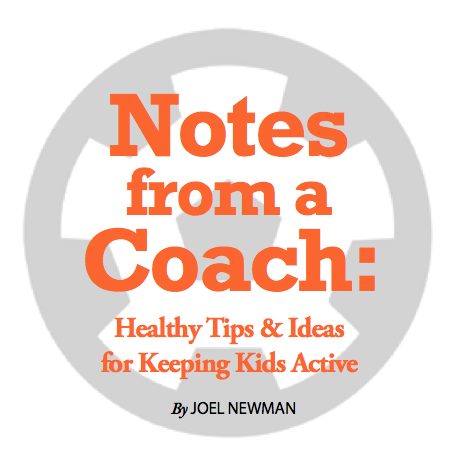
 It’s easy for parents first getting their kids into sports and activities to see the wisdom of picking a safe age group or lower level within a program. However, as parents watch their kids succeed and as kids gain experience, it seems natural for them to ask, should I move my daughter up to the next level? Is my son ready to play with an older age group? Is my child ready for a more competitive environment? As parents make these decisions, I think they should consider the volatile nature of development, generally keep their child with their friends and resist the urge to increase competition.
It’s easy for parents first getting their kids into sports and activities to see the wisdom of picking a safe age group or lower level within a program. However, as parents watch their kids succeed and as kids gain experience, it seems natural for them to ask, should I move my daughter up to the next level? Is my son ready to play with an older age group? Is my child ready for a more competitive environment? As parents make these decisions, I think they should consider the volatile nature of development, generally keep their child with their friends and resist the urge to increase competition.
Development is not a steady line. It comes in fits and spurts. Quite often, a period of rapid development is followed by a period of slow development. Therefore, it’s not unusual for a child who rises to the top of their class to be back in the middle 3-6 months later as his or her peers catch up. If you look out and your child is outperforming his or her peers, wait a few months and see if it’s still happening. If so, I’d say a trend is forming. If it goes on for a few seasons or a year, check in with your child and see what they think about it?
Kids love sports but they love them a lot more when they can play with friends. A recent Michigan State University survey
polled youth soccer players ages 5-18 and 65% reported that they “participate in sports to be with friends.” Adults know that a day at the beach, a dinner, or a walk can be more fun with a friend (rather than strangers) and kids know it, too. Whether or a not a child can physically and mentally do what the older kids or kids in the “next level” do, if it’s not with their friends, a decrease in engagement would not be surprising.
Fun is so important, for kids under 10, I repeatedly find myself counseling parents against competition. While the challenges of competition can be stimulating and enjoyable, the younger a child, the more likely they’ll misunderstand the nature of the activity. If beating an opponent takes precedence in the mind over performing as well as possible, enjoyment tends to disappear. As your child dips their toe into competition, keep a gauge on how they experience it. Keep the focus on trying hard and having fun. Let’s face it, on average, everyone loses 50% of the time but we want kids to have fun 100% of the time, so losing can’t poison fun.
With kids developing and changing relative to their peers all the time, the highs and lows of competition and the importance of playing with friends, before you bump your child’s sports experience up a notch, consider whether any new environment would be as much fun from your child’s perspective. If
it wouldn’t be and they love where they are, resist the urge to make a change.

